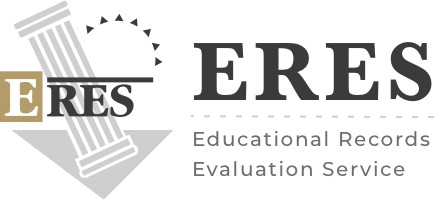Blog
Studying in the USA as a Foreign Student: A Guide to Higher Education

Are you considering studying abroad in the United States? You will be joining more than a million other international students! Our guide to international student admission in US universities will help you navigate the process of applying to and enrolling in the university of your choice and starting your higher education journey.
Requirements for international students to study in usa
Step 1: Select a University
When deciding where to apply to college in the United States as an international student, it is important to think about the major you hope to study and the career path you envision for yourself. Knowing what you want to major in can help you narrow your choices.
As you contemplate a potential major, you must keep in mind the skills and passions you already possess. Next, consider university rankings to find the best universities, especially Ivy League colleges. As you learn more about their individual courses, you’ll be able to refine your selection further.
Many schools let first-year students begin their studies without choosing a major, so they can explore their options before committing. This allows you to dabble in different disciplines before settling on a major.
Step 2: Transcript Evaluation for International Student
The next step in international student admission is to get your credential evaluated for higher education. Some schools will require an evaluation of your academic transcripts as part of the application process.
Transcripts help admissions officers verify that the courses you have completed are equivalent to those offered by the schools you are applying to in the United States, especially if there is a discrepancy between the titles used in your country and the United States.
Independent organizations review transcripts. Remember that whichever service you go with must first be accredited to evaluate transcripts. Checking for membership in a respectable organization, such as NACES, is one way to confirm an agency’s legitimacy and ability to provide credential evaluations. It is recommended to choose a NACES member to avoid any troubles down the road.
Credential evaluation services evaluate your prior diplomas and certifications and your current transcripts to compile a report of your total credit hours and academic performance. They also offer course-by-course evaluations to assess a program’s effectiveness or curriculum.
Step 3: Explore Financial Assistance Options for Foreign Students
The high education expense is a major barrier for many overseas students studying in the United States. Luckily, a wide variety of financial assistance options are available to international students. Here are some alternatives you can explore.
- Scholarships: Scholarships are competitive and are generally awarded based on academic achievement. While some awards are modest, others might be substantial and pay for a significant portion of your education.
- Fellowships: International students in the United States may be eligible for a substantial financial prize in the form of a fellowship. Some fellowships cover full tuition costs, while others provide a stipend. Many fellowships have strict eligibility requirements and are only available to those pursuing a specific field of study.
- Grants: Grants from private foundations, businesses, colleges, and other organizations are typically available to international students who are not eligible for federal aid in the United States. Students who receive grants may be required to fulfill certain project requirements to get the money.
Step 4: Start the Application Process
Once you have chosen the university and have your academic credential and other documents in order, you are ready to start the application process. The application form is usually completed online. This is your opportunity to present yourself to the institution.
While over 900 schools in the USA accept the Common Application, several institutions still demand their own applications. Read the requirements carefully and prepare the required documents. In addition to showing your original transcripts and foreign credential evaluation, you may also be required to submit proof of identity, a personal statement or letter of intent, and reference letters, among other documents.
Step 5: Student Visa Application
You need a valid student visa to study in the United States. Three student visas are available in the United States: F-1, J-1, and M-1. Check out the options here to see which one suits you best.
- F-1: International students in the United States typically enter with an F-1 student visa. Students who are granted an F-1 visa are expected to continue their studies full-time. In addition, F-1 students can participate in a year of practical training following graduation.
- J-1: To participate in short-term exchange programs or receive training that is not available in their native country, students can apply for a J-1 visa. This hands-on experience is directly related to the student’s chosen subject of study. Sponsorship typically comes from organizations with a philanthropic mission.
- M-1: The M-1 visa is required for those who wish to pursue vocational or non-academic studies. Students with an M-1 visa are restricted from holding a job while enrolled in school. Therefore, if you want to enter the United States on an M-1 visa, you’ll have to prove that you can cover your entire educational and living costs.
Take the First Step to Studying in the US with ERES Credential Evaluation
International student admission can be a complicated process. However, thousands of international students successfully move to the USA for higher studies every year – and you can too. ERES can assist in this regard.
We provide reliable academic credential evaluation services to help you meet the eligibility requirements. We serve as a conduit between students with foreign education backgrounds and the higher education institutes in the US. Contact us today to learn more about our services and take the first step toward realizing your academic dreams.
Start Now
ERES
Educational Records Evaluation Service helps Non-US educated individuals to receive their US equivalences with our credential evaluation reports.
Services
Contact us
Tue - Fri: 10:00 to 16:00 ( PST )
4773 Mangels Blvd, Fairfield, CA 94534, USA.
© 2024 Educational Records Evaluation Service. All rights reserved.












